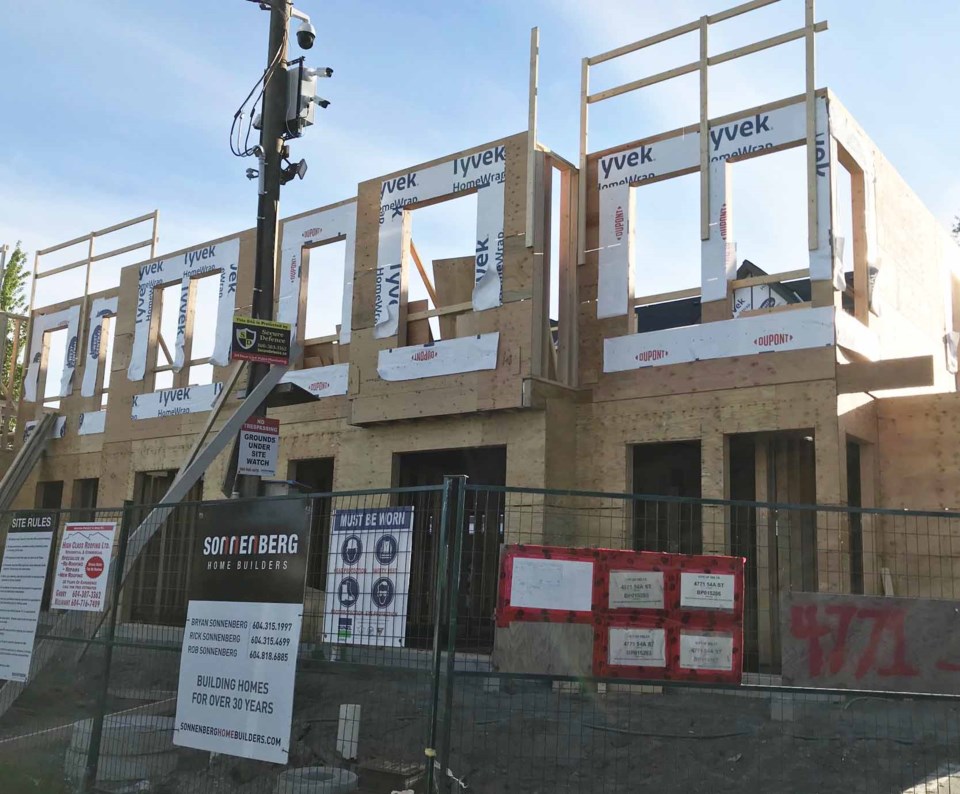The Trudeau Government has finally realized that housing affordability is a national issue that could cost them the next election unless they take emergency measures. The feds certainly have the tools: a ministry of housing headed by a rising Liberal star in Sean Fraser; a federal agency, CMHC, with a mission (according to its website) “to make housing affordable for everyone in Canada,"; and, most importantly, the fiscal heft of taxing powers to incentivize affordable housing construction.
The federal government recently announced the removal of the GST/HST on the construction of purpose-built rental buildings. A GST cut may make some projects feasible, but don’t expect affordability to follow without additional concurrent measures. The demand for rentals is just too high, and the industry is constrained by high financing and construction costs to deliver the supply needed to meet today’s extraordinary demand.
Affordability can only be achieved if at least 50 per cent of the new units built are rented at affordable rents that are pegged to the local median incomes in that community. The median household income in Vancouver is $82,000, in Toronto $84,000.
Benjamin Tal, the deputy chief economist of CIBC World Markets Inc., says developers have tried but that “despite having a low cost of capital through partnerships with Canadian pension funds, a long-term investing horizon, and a mandate to be part of the solution to the rental supply crisis, they are unable to make (rental) projects economically viable in the current climate of rising interest rates and high borrowing costs. It’s simple math.”
Governments may set rental housing supply targets, but builders won’t build housing just to lose money.
More supply and densification policies are good for lots of reasons, but not for making housing more affordable for locals or new immigrants, either to buy or to rent.
As Douglas Porter, BMO’s chief economist has repeatedly said, it is unrealistic -- even wishful thinking -- to believe that with the current shortages of labour and materials in the construction industry, and higher borrowing costs, builders even have the capacity to flood the market with so much supply that housing prices will fall and become affordable.
How, then, can all levels of government provide the construction industry with a suite of financial incentives that will lead to affordable purpose-built rental buildings under today’s financial realities?
Waiving the GST/HST was a good start, but it’s still not tied to affordability. Tal estimates that it could cut about $60,000 from the unit cost of a building in Toronto.
The second step lies with municipalities, who have the authority to waive all development fees and charges on new affordable rental homes, conditional on achieving 50 per cent of the units at rents no greater than 30 per cent of the local median household income, secured by a 40-year housing agreement. The two fiscal measures of removing both the GST/HST and development fees could lower the cost of constructing a rental building by 33 per cent or $280,000 per unit. That’s a $28 million project cost saving on a 200-unit rental building with 100 moderately affordable units.
It would be up to senior levels of government with deeper pockets to leverage their investments in affordable rental housing and get more bang for the buck by rebating the lost revenues to municipalities.
Jon Love, CEO, and founder of Kingsett Capital, Canada’s leading private equity real estate investment firm, believes that “an affordable rental requirement, as a condition of a municipal waiving of all development fees, combined with the recently announced waiving of HST/GST, is a winning combination that would unleash a wave of activity.”
Third, the federal government has the fiscal policy authority to set income taxes that can be leveraged to achieve affordable rental buildings. The 1970s MURB program allowed income tax deductions for individuals who invested in and financed the construction of affordable multiple-unit rental buildings. Most of the older affordable rental stock in cities today was built under the MURB program.
It’s time to revive a 2023 version of the MURB program as an emergency measure and treat affordable housing as a basic infrastructure of a healthy society.
Fourth, a federal agency, the Canada Land Corporation (CLC), owns excess public land which could be used for the public good. The federal government could offer these lands at a zero land cost to build affordable housing, requiring that at least 50 per cent of the units built be rental housing that is affordable for local median incomes. The federal government has missed a golden opportunity by allowing the CLC to partner with developers for luxury housing (with a minimal affordable housing requirement) to maximize profits on Toronto’s massive 520-acre Downsview site, Vancouver’s 90-acre Jericho lands and the 21-acre Heather lands developments.
Finally, it’s one thing to incentivize builders to build more rental housing, it’s quite another to get cities to deliver the housing permits without delay and without the many arcane rules and regulations that grind down builders and stymie the process of issuing a building permit. City regulations are like a poison pill to stop any innovative housing plans.
Government can appoint a housing czar - a pragmatic outside business executive with clear outcome responsibilities. Job one: clear the decks and provide a “service guarantee” to deliver building permits within three months of application, guaranteed and prioritized, for all affordable housing projects. That may require additional staff to be funded by senior levels of government.
These proposals may not be the magic bullets to immediately solve a housing affordability crisis that is decades in the making, but they are at least a start to try and make a difference.
Arny Wise is an urban planner and retired real estate developer.



